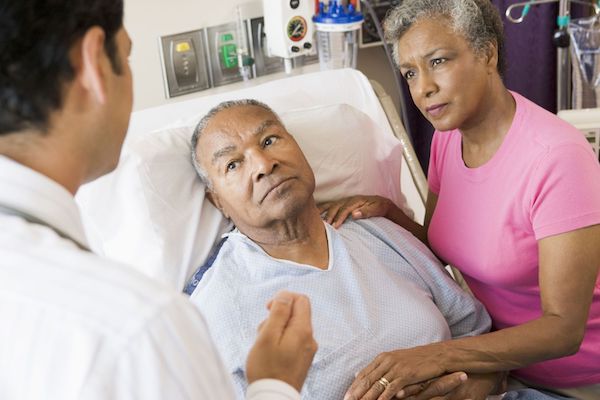Primary liver cancer occurs when normal liver cells change into malignant ones that multiply until they take over the liver.

Hepatocellular carcinoma is the most common form of primary liver cancer in adults and is the third leading cause of cancer deaths worldwide. Other liver cancers include intrahepatic cholangiocarcinoma and the rare forms, angiosarcoma, hemangiosarcoma and hepatoblastoma, which develops in children.
Primary liver cancer accounts for six percent of cancer deaths in South Africa, according to the South African Medical Research Council.
Liver cancer causes include:
- Hepatitis B and C
- Hemochromatosis (a liver overloaded with iron, a hereditary condition)
- Cirrhosis
- Birth defects
- Alcohol abuse. Many people diagnosed with primary liver cancer have scarred livers, usually caused by drinking too much alcohol. However, liver cancer can also be a result of non-alcoholic fatty liver disease.
Secondary liver cancer occurs when cancer has spread or metastasized from somewhere else in the body such as the stomach, breast or lung.
What are its symptoms?
The problem with primary liver cancer is that in the beginning people don’t experience any signs and symptoms. After the early stages, however, liver cancer symptoms include:
- Loss of appetite
- Nausea and vomiting
- Loss of weight
- Feeling tired and generally weak
- Pain in the upper abdomen
- Swelling of the abdomen
- Jaundice – ‘yellow’ whites of the eyes and a yellow-tinge to the skin
- Stools that are pale and chalky.
How is it diagnosed?
There are a number of ways in which one tests for liver cancer. Firstly, a doctor will take a full medical history to find out about the patient’s possible risk factors, other health problems and possible signs and symptoms of liver cancer he or she is experiencing. They will also do a thorough physical examination of the patient.
Non-invasive tests include X-rays and scans like an MRI, ultrasound or a CT scan.
However, they will also need to do liver cancer blood tests that may reveal abnormal functioning of the liver, and/or a liver biopsy, when a sample of liver tissue is removed using a thin needle inserted into the abdomen. The sample is then examined under a microscope.
What are your treatment options?
There are several liver cancer treatments available. These include:
- Chemotherapy: This entails swallowing medication or having the medication injected into a vein.
- Radiation therapy: The liver is subjected to high levels of radiation to kill the cancerous cells.
- Surgery: Occasionally a surgeon can remove the part of the liver with cancer, however, this works best on smaller tumours.
- Embolization: This involves interrupting the blood supply that feeds the tumour, in other words, starving the cancer. This is done by injecting obstructions that can block blood vessels.
- Ablation therapy: This includes high-energy radio waves that heat and destroy smaller tumours, microwaves that heat and kill cancer cells, concentrated alcohol injected into the tumour to destroy it, and extremely cold gases that freeze and kill the tumour, often used on larger tumours.
- Liver transplant: If you have a case of advanced liver cancer or cirrhosis of the liver, the doctor will remove the cancerous liver and replace it with a healthy one from another individual.
Can it be prevented?
Hepatitis B (HBV) or hepatitis C (HCV) can cause liver cancer, so avoid exposure to these diseases by never sharing intravenous needles, always wearing gloves if you have to handle bodily fluids or blood, and get vaccinated against HBV. You can also get tested for either of these infections, as some medications can control, or even cure, these infections.
Additionally:
- Eat a balanced diet, exercise regularly and don’t smoke, lowering the risk of non-alcoholic fatter liver disease.
- Take vitamin D and keep your cholesterol levels low.
- Don’t drink too much alcohol, as it causes cirrhosis, or scarring, of the liver, which raises the risk of liver cancer.
What to do now
Book an appointment at your nearest Clicks Clinic for hepatitis vaccines. Call 0860 254 257 to book an appointment or visit Clicks Clinic online.
For more info
The Cancer Association of South Africa
Childhood Cancer Foundation South Africa
IMAGE CREDIT: 123rf.com
